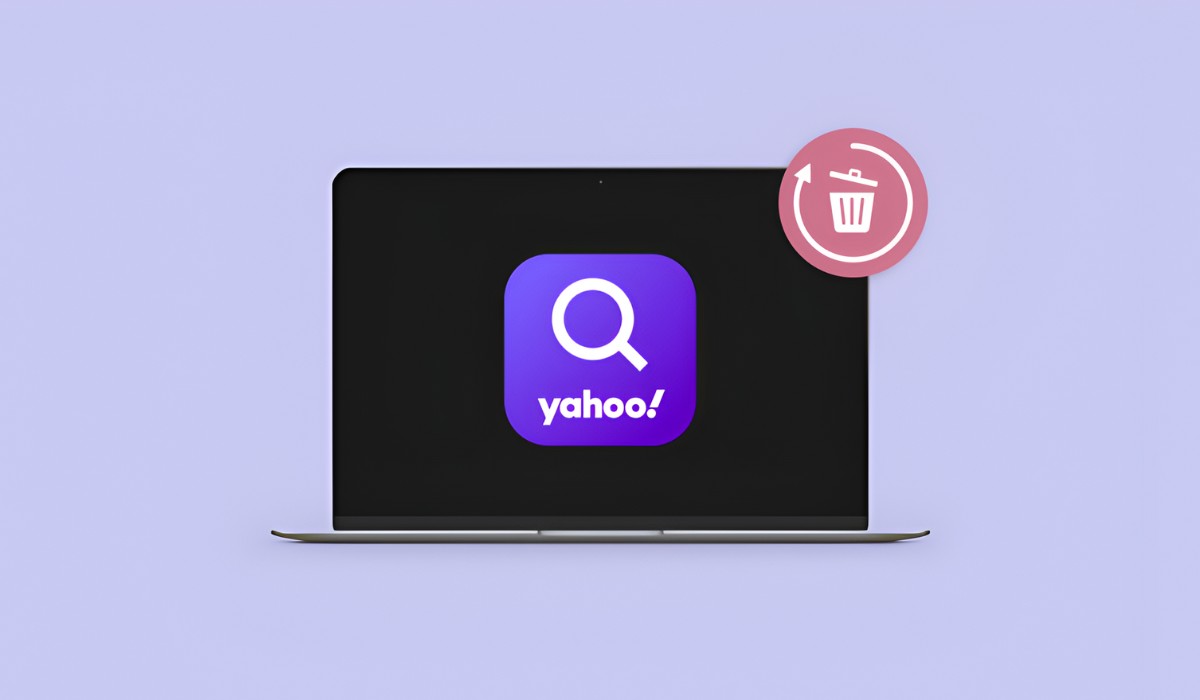Introduction
Safari is a popular web browser known for its sleek interface and seamless user experience. However, some users may find that their default search engine has been unexpectedly set to Bing. While Bing is a reputable search engine, many users prefer to use other search engines such as Google or Yahoo. If you're one of those users and you want to remove Bing from Safari, you've come to the right place.
In this guide, we'll walk you through the step-by-step process of removing Bing from Safari and setting your preferred search engine as the default. Additionally, we'll explore how to remove any Bing-related extensions that may have been installed in your Safari browser without your knowledge.
By the end of this tutorial, you'll have a clear understanding of how to regain control over your browsing experience and ensure that your preferred search engine is the one used when you perform searches in Safari.
So, whether you're encountering Bing as your default search engine due to a software update, an accidental setting change, or any other reason, rest assured that we've got you covered. Let's dive into the steps to reclaim your preferred search engine in Safari.
Step 1: Open Safari Preferences
To begin the process of removing Bing from Safari, the first step is to open the Safari Preferences. Safari Preferences serve as the control center for customizing various settings within the browser, including the default search engine and installed extensions.
Here's how to access Safari Preferences:
-
Launch Safari on your Mac device. You can do this by clicking on the Safari icon in the dock or by searching for Safari using Spotlight.
-
Once Safari is open, navigate to the top-left corner of the screen and click on "Safari" in the menu bar. A drop-down menu will appear.
-
In the drop-down menu, select "Preferences." Alternatively, you can use the keyboard shortcut "Command + ," to directly open the Preferences window.
Upon selecting "Preferences," a new window will open, presenting a range of customization options for Safari. This is where you can modify settings related to general browsing, tabs, privacy, security, and more.
By accessing Safari Preferences, you gain the ability to tailor the browser to your specific preferences, ensuring a personalized and optimized browsing experience. This level of customization empowers users to take control of their browsing environment, including the search engine used for web searches.
With Safari Preferences now open, you're ready to proceed to the next step in the process of removing Bing from Safari and setting your preferred search engine as the default.
Step 2: Change Default Search Engine
Now that you have accessed Safari Preferences, the next crucial step is to change the default search engine from Bing to your preferred choice, such as Google, Yahoo, or DuckDuckGo. By making this adjustment, you ensure that all future web searches performed directly from the Safari address bar or search field will utilize your selected search engine.
Here's how to change the default search engine in Safari:
-
In the Safari Preferences window, click on the "Search" tab. This tab is typically represented by a magnifying glass icon, symbolizing the search functionality within the browser.
-
Within the Search tab, you'll see a dropdown menu labeled "Search engine." Click on this dropdown menu to reveal a list of available search engine options supported by Safari.
-
From the list of search engines, select your preferred search engine. For instance, if you prefer Google, simply click on "Google" in the dropdown menu to set it as the default search engine for Safari.
-
Once you've selected your preferred search engine, close the Safari Preferences window to save the changes. Your chosen search engine is now set as the default for all future searches conducted within Safari.
By changing the default search engine in Safari, you ensure that your browsing experience aligns with your preferences and habits. Whether you prioritize the comprehensive search results of Google, the privacy-focused approach of DuckDuckGo, or the familiarity of Yahoo, customizing the default search engine empowers you to tailor your browsing experience to suit your needs.
This simple yet impactful adjustment allows you to seamlessly integrate your preferred search engine into Safari, enhancing the efficiency and relevance of your web searches. With your chosen search engine now serving as the default, you can proceed to the next step in the process of removing Bing from Safari and optimizing your browsing environment.
With the default search engine successfully changed, you're well on your way to reclaiming control over your browsing experience in Safari. Let's continue the journey toward removing Bing from Safari and ensuring that your preferred search engine takes center stage in your web searches.
Step 3: Remove Bing from Safari Extensions
Safari extensions are powerful tools that can enhance your browsing experience by adding functionality and features to the browser. However, it's essential to ensure that all installed extensions align with your preferences and are free from any unwanted or intrusive elements. If you've discovered that Bing-related extensions have been installed in your Safari browser without your consent, it's crucial to remove them promptly to maintain a secure and personalized browsing environment.
Here's how to remove Bing from Safari extensions:
-
Open Safari Preferences: Begin by launching Safari on your Mac device and accessing the Safari Preferences window. You can do this by clicking on "Safari" in the menu bar and selecting "Preferences," or by using the keyboard shortcut "Command + ,".
-
Navigate to Extensions: Within the Safari Preferences window, click on the "Extensions" tab. This tab provides an overview of all installed extensions in Safari, including those that may have been added without your knowledge.
-
Identify Bing-Related Extensions: Scan through the list of installed extensions to identify any that are related to Bing or appear unfamiliar. Bing-related extensions may have names or descriptions that reference Bing, search tools, or related keywords. It's important to exercise caution and carefully review each extension before proceeding with the removal process.
-
Remove Unwanted Extensions: Once you've identified the Bing-related or unwanted extensions, proceed to remove them from Safari. To do this, simply select the extension you wish to remove and click on the "Uninstall" or "Remove" button associated with it. Safari will prompt you to confirm the removal, after which the extension will be uninstalled from the browser.
-
Restart Safari: After removing the unwanted extensions, it's advisable to restart Safari to ensure that the changes take effect. Close the Safari Preferences window and relaunch the browser to experience the updated extension settings.
By removing Bing-related extensions from Safari, you not only eliminate any unwanted elements from your browsing experience but also safeguard your privacy and security. Unwanted extensions can potentially track your browsing activity, display intrusive ads, or alter your search results, impacting the overall quality of your online interactions.
With Bing-related extensions successfully removed from Safari, you've taken a proactive step toward maintaining a clean and personalized browsing environment. Your efforts contribute to a more secure and tailored browsing experience, ensuring that your interactions with the web align with your preferences and priorities.
As you proceed with the process of removing Bing from Safari, the next step involves clearing your browsing history and website data to further optimize your browsing environment and ensure a fresh start for your web interactions. Let's delve into the final step to complete the process and solidify your preferred search engine as the focal point of your Safari browsing experience.
Step 4: Clear Safari History and Website Data
Clearing your Safari history and website data is a crucial step in the process of removing Bing from Safari and ensuring that your preferred search engine remains the focal point of your browsing experience. By clearing this data, you not only optimize the performance of the browser but also enhance your privacy and security while browsing the web.
Here's how to clear your Safari history and website data:
-
Open Safari Preferences: Begin by launching Safari on your Mac device and accessing the Safari Preferences window. You can do this by clicking on "Safari" in the menu bar and selecting "Preferences," or by using the keyboard shortcut "Command + ,".
-
Navigate to the Privacy Tab: Within the Safari Preferences window, click on the "Privacy" tab. This tab contains essential settings related to browsing data, including the option to manage website data, cookies, and browsing history.
-
Manage Website Data: In the Privacy tab, click on the "Manage Website Data" button. This action will open a window displaying a list of websites that have stored data on your device. This data may include cookies, cache files, and other site-specific information.
-
Remove Website Data: To clear website data associated with specific websites, you can select individual entries from the list and click on the "Remove" button. If you prefer to remove all website data at once, you can click on the "Remove All" button, prompting Safari to delete all stored website data from your device.
-
Clear Browsing History: To clear your browsing history in Safari, navigate to the History menu in the menu bar and select "Clear History." You can choose the time range for which you want to clear the history, such as the last hour, today, today and yesterday, or all history. Once selected, click on "Clear History" to remove the specified browsing history from Safari.
By clearing your Safari history and website data, you effectively reset your browsing environment, removing any traces of previous interactions and stored data. This process not only contributes to a more streamlined browsing experience but also minimizes the risk of privacy concerns associated with retained browsing history and website data.
With your Safari history and website data now cleared, you've successfully completed the process of removing Bing from Safari and ensuring that your preferred search engine remains the primary choice for your web searches. Your proactive approach to managing your browsing environment reflects a commitment to a personalized, secure, and efficient online experience.
As you navigate the digital landscape, your ability to customize and optimize your browsing settings empowers you to align your online interactions with your preferences and priorities. By following the steps outlined in this guide, you've taken control of your Safari browser, ensuring that it reflects your individual preferences and supports your browsing habits.
With Bing removed from Safari and your preferred search engine set as the default, you can now enjoy a seamless and tailored browsing experience, free from unwanted intrusions and aligned with your unique preferences.
Conclusion
In conclusion, the process of removing Bing from Safari and setting your preferred search engine as the default involves a series of strategic steps aimed at reclaiming control over your browsing experience. By following the outlined guidelines, you've taken proactive measures to ensure that your preferred search engine, whether it's Google, Yahoo, DuckDuckGo, or another option, serves as the focal point of your web searches in Safari.
As you navigated through Safari Preferences, you gained insight into the customizable elements of the browser, empowering you to tailor its settings to align with your individual preferences and browsing habits. The ability to change the default search engine within Safari not only reflects your personal preferences but also enhances the relevance and efficiency of your web searches, ensuring that you receive results from your preferred search provider.
Furthermore, the removal of Bing-related extensions from Safari underscores your commitment to maintaining a clean, secure, and personalized browsing environment. By identifying and eliminating unwanted extensions, you've safeguarded your privacy and security, mitigating the potential impact of intrusive elements on your browsing experience.
Clearing your Safari history and website data represents the final step in solidifying your preferred search engine as the cornerstone of your browsing interactions. By resetting your browsing environment and removing stored data, you've optimized the performance of Safari while minimizing privacy concerns associated with retained browsing history and website data.
As a result of these concerted efforts, you've successfully removed Bing from Safari and established a browsing environment that resonates with your preferences and priorities. Your commitment to customization, security, and efficiency has culminated in a tailored and seamless browsing experience, free from unwanted intrusions and reflective of your unique browsing habits.
By embracing the process of removing Bing from Safari, you've not only reclaimed control over your browsing experience but also demonstrated a proactive approach to managing your digital interactions. Your ability to customize and optimize your browsing settings reflects a commitment to a personalized, secure, and efficient online experience, ensuring that your interactions with the web align with your individual preferences and priorities.
With Bing removed from Safari and your preferred search engine set as the default, you can now enjoy a seamless and tailored browsing experience, free from unwanted intrusions and aligned with your unique preferences.

























